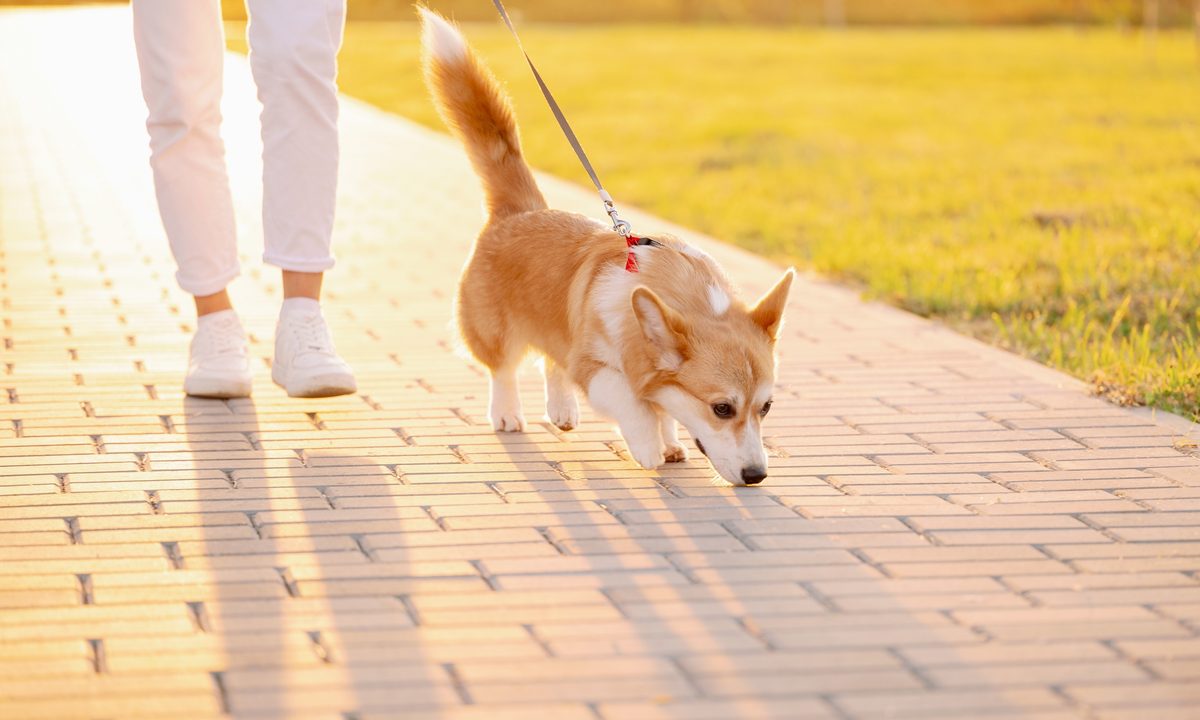Knowing how long to walk dogs can be difficult, especially if you’re just beginning an exercise routine with a new pup. Fortunately, online resources are plentiful, but you won’t truly know what works until you begin some trial-and-error walks. With a little patience and a close eye on your dog, though, you’ll be able to figure out the duration of your dog’s perfect walk.
Read on to discover the best ways to build this important routine. Your dog will thank you for it!
How long to walk dogs?
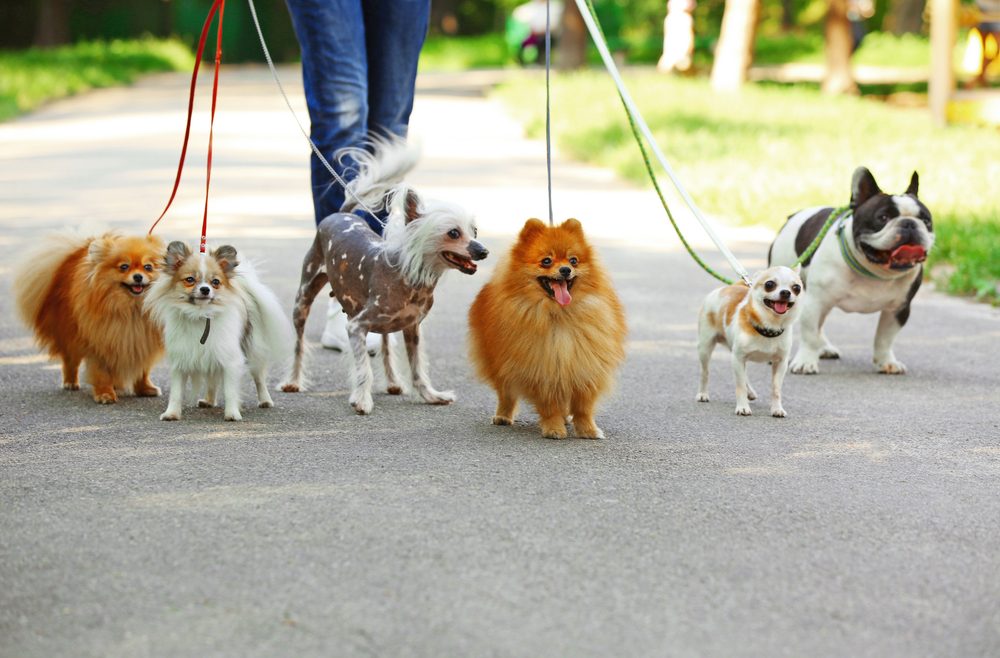
There’s no one-size-fits-all answer to this question because many factors determine a dog’s ideal walk duration. Some pups will be exhausted after a walk around the block, while others can run for miles. In fact, a few dogs actually do.
In 2023, marathon runner Aaron Robinson ran 365 marathons in 365 days alongside his loyal dogs, Inca and River. Aaron assured BBC that they would all stop running if either of the dogs did, but the energetic pups continued running and playing every afternoon following their family run. Of course, most dogs won’t be up for this, but it’s a great reminder not to underestimate your canine friend.
Here’s what to keep in mind.
Keep your dog’s breed and size in mind
Small dogs take many more steps to travel the same distance as larger dogs, so they often require a shorter walk to get the same amount of exercise and mental stimulation. Tiny dogs might be exhausted by a walk around the block, but medium and large dogs may need an hour or two of exercise each day.
Additionally, working dogs tend to have a lot more energy to expend. They need multiple hours of exercise every day. A border collie, German shorthaired pointer, or Viszla will be happy to go for a run by your side, but be sure to start slowly to help your furry friend avoid injury. Many pet parents can’t walk for several hours a day, so make sure your buddy has plenty of space to run and play at home, too.
Consider your dog’s age, health, and fitness level
A dog’s age can affect their endurance even more than their breed, so don’t expect senior dogs or puppies to walk for a very long time. Puppies shouldn’t go for a walk until they’ve finished their puppy vaccinations, and be prepared to tackle leash training before going for lengthy walks. Puppies often need to go potty every two to four hours, so short walks would be a better fit than longer ones, anyway.
Dogs that aren’t used to going for walks won’t be able to run a mile on their very first day. See how your dog reacts to a walk to the end of the block before lengthening your walk little by little. This will also help solidify leash-training skills without overwhelming your dog with more than they can handle.
Other factors may determine the length of your walk
Keep in mind that your dog’s routine walks may not always look the same. You’ll need to be flexible for a number of reasons, including bad weather, injuries, or road closures, so be sure to have a backup plan in mind, just in case.
How to tell when your dog is (or should be) done walking
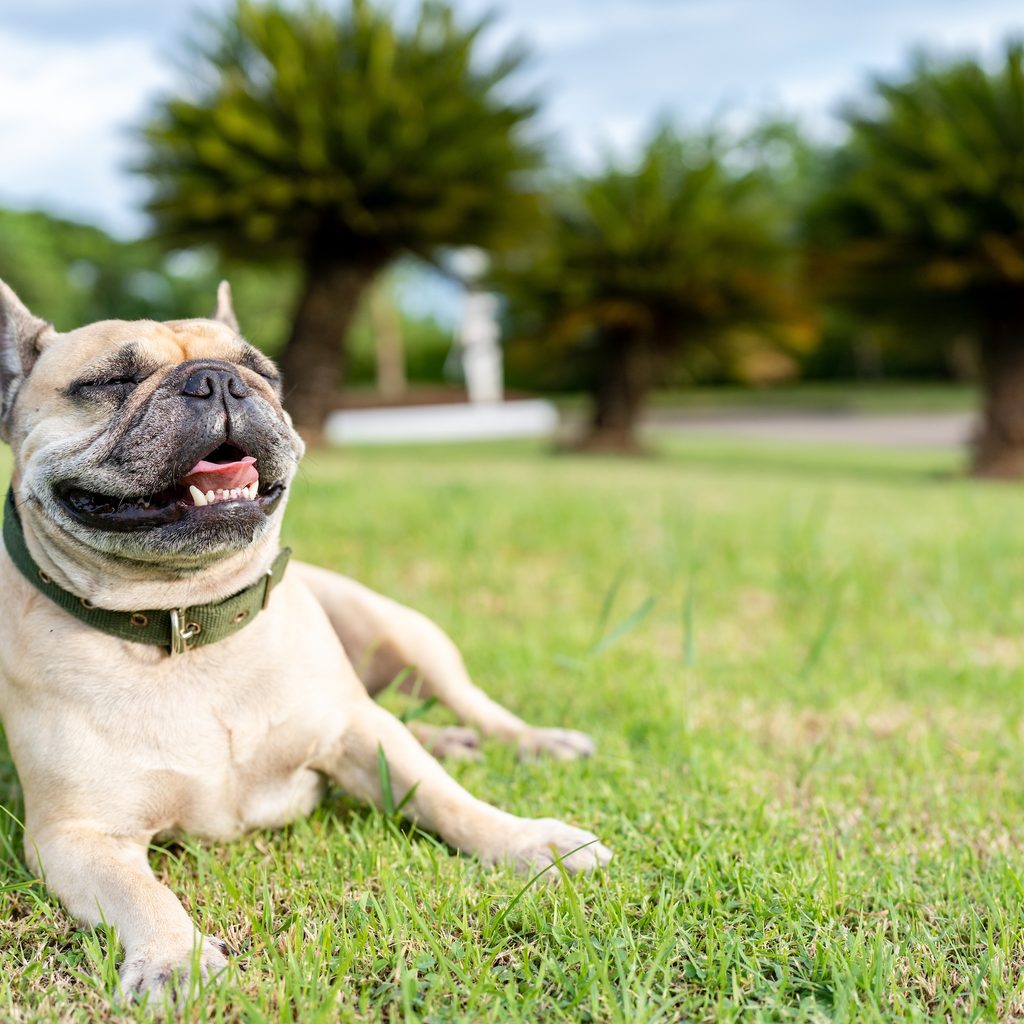
Keep an eye on your dog’s body language and behavior to see whether they’re enjoying their walk or they’re ready to head home. Panting is definitely the sign of a well-exercised dog, but it doesn’t necessarily mean it’s time to turn around. However, many dog owners notice that their pup slows down significantly toward the end of their walk, so this could be a sign that you should head home.
The easiest way to test whether the length of your walk is enough is to observe your dog’s behavior afterward. If they’re still playing and acting rambunctious immediately after, you can try walking for a little longer. If your dog settles down and acts calm and content, they’re likely getting enough exercise.
Potty breaks vs. walks
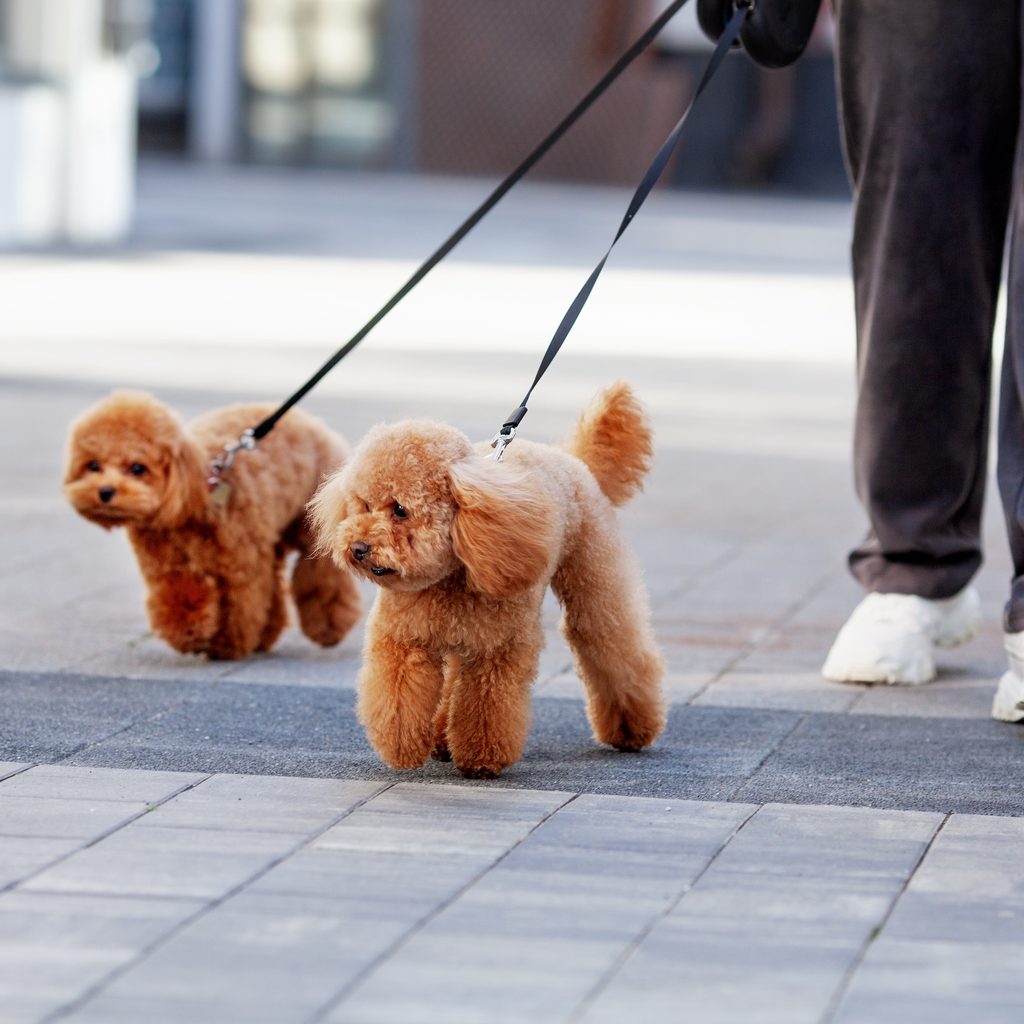
Most dogs need both potty breaks and walks to meet all their needs, but it’s important to establish two different routines so your dog doesn’t get confused. This is easy if you have a backyard for potty breaks, but those who live in apartment buildings may need to have a routine place to visit where your dog relieves themself. Try visiting the same patch of grass or walking for 5 minutes instead of your dog’s full routine. Eventually, they’ll get the hang of it.
Alternatives to walking your dog
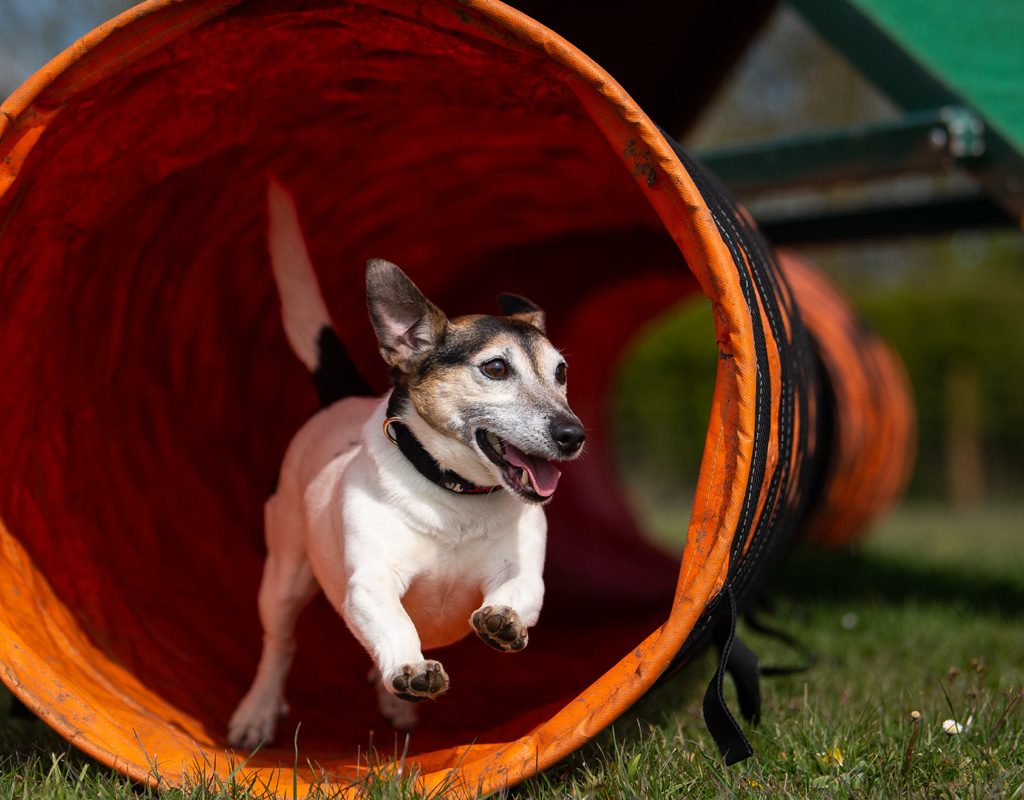
Walking isn’t the only way dogs get exercise, though it’s often the most convenient. Many dogs also enjoy running, hiking, or playing fetch. In the summertime, many dogs enjoy taking a dip in the pool or lake, but it’s important to supervise your pup at all times if you let them swim.
Canine sports are another popular way to give dogs physical and mental stimulation. Any dog can learn to run an agility course, but there are many options, like dock diving, disc sports, and even herding events, for athletes to try.
Although you don’t have to completely rely on walks to meet your dog’s exercise needs, it’s important to know how long to walk your dog to help them feel fulfilled and rested. Before you know it, these walks will feel as routine as getting ready in the morning.
